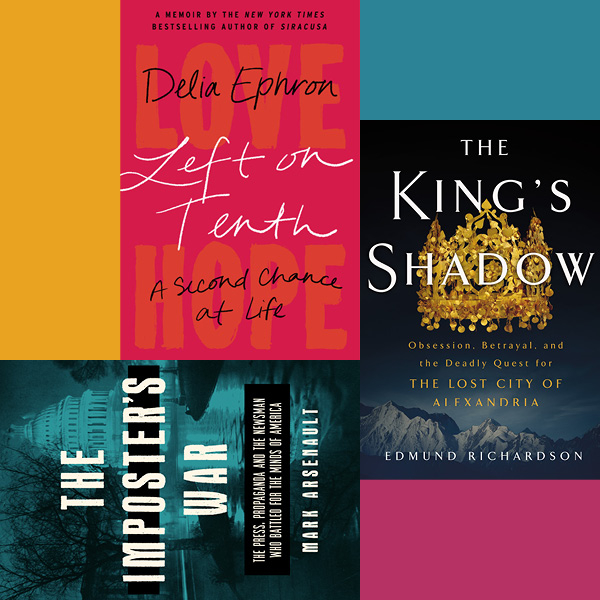If Delia Ephron had written about the previous decade of her life as a screenplay, she would have had to invent a new genre, perhaps calling it “romcomtrag,” with the emphasis as much on tragedy as on romance and comedy. Her first husband loses a long battle with pancreatic cancer, which leads her to write a poignant yet funny piece for The New York Times about her battle with Verizon over his old phone number, which leads a long-ago acquaintance now living in California (one she did not even remember despite several dates!) to contact her and commiserate, having recently lost his own wife.
Well, what follows may be the best connection that Verizon (inadvertently) ever made, since Peter (a psychiatrist, no less!) and Delia fall in love. What also follows is more tragedy, since Delia is diagnosed with leukemia, a disease that runs in her family and that claimed her sister, the famous and beloved Nora, in 2012. (In fact, Delia was a perfect match for donating stem cells to her sister during her illness, but that did not work out.)
The passages about Delia’s own illness are harrowing as she navigates trial drugs and an especially obnoxious doctor, a struggle that is improved immeasurably by her own specialists, a loving husband (they held the wedding reception in her hospital room), scores of friends, and her own capacious sense of humor. Much of the story is told via e-mails and texts among her and those who love her, lending the book a real-time intimacy that artfully captures both her despair and hope. And did I mention that during all this her dog dies? This is a wonderful book, not least because in the end Delia Ephron is cancer-free. The reader not only wants to hug her but also be hugged by her, hoping that some of her warmth and wisdom rub off.
Oh gosh, another true-adventure book? Between Antarctic shipwrecks and ill-fated mountain treks and jungle explorations gone horribly wrong, how many derring-do exploits can a reader handle? We are delighted to report that The King’s Shadow is its own treasure, a beautifully told tale about one man’s obsessive retracing in the 19th century of the footsteps of Alexander the Great in Afghanistan. Of course the man is British, of course he is both archeologist and spy, and of course his real name is not Charles Masson, though that is how history remembers him if it remembers him at all. Edmund Richardson has written an enthralling chronicle of a slightly insane man on an even more insane quest, and the fact that Masson ends up in an unmarked grave does nothing to lessen his achievement.
Who was John Revelstoke Rathom? On the surface he was the editor of the Providence Journal who waged a remarkable campaign to expose German skulduggery in America during the early days of World War I, a campaign that helped persuade the United States to abandon its neutrality and enter the war itself. But as it turns out, Rathom, a swashbuckling Australian who regaled listeners with tales of his own journalistic exploits, turned out to be a fraud himself, despite uncovering German perfidy.
Mark Arsenault does a sterling job tracking down who Rathom really was and what ultimately made him a tragic figure targeted by no less a foe than a young F.D.R. No spoilers here (well, maybe one: he was born Jewish and was so fearful of anti-Semitism in America that he changed his name on his way from Australia), but what Arsenault has produced is a riveting tale about a now forgotten impostor whose newspaper stories were far truer than his own story.
Left on Tenth, The King’s Shadow, and The Imposter’s War are available at your local independent bookstore, on Bookshop, and on Amazon

